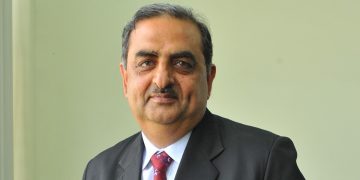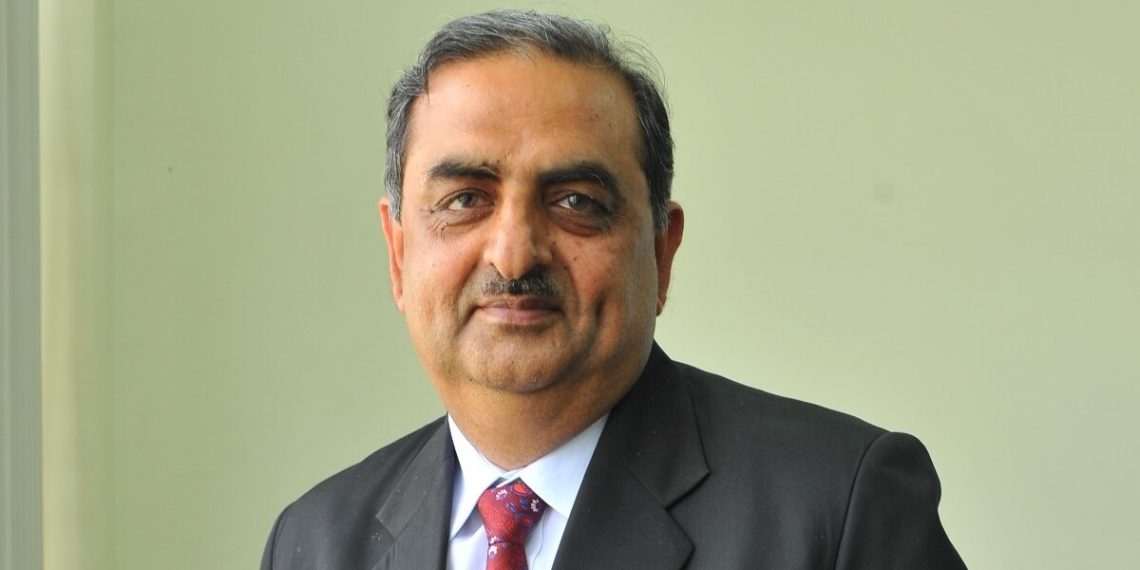In today’s rapidly evolving world, leadership is no longer about command and control; it is about foresight, adaptability, and empowerment. Mr. Kanwal Jeet Jawa, President of DESDS (Daikin Japanese Institute of Manufacturing Excellence – DJIME), embodies this philosophy. Under his leadership, DJIME has become a pioneering model in skill-based education, integrating Japanese manufacturing values with Indian potential. In this interview, he shares his insights on leadership, DJIME’s journey, and the future of skill-based education in India.
Q. What does leadership mean to you today—especially in an era driven by rapid innovation and digital transformation?
Leadership today, especially in this era of rapid innovation and digital transformation, is about being a catalyst for change, having the vision to foresee emerging trends, the courage to adapt swiftly, and the humility to listen and learn continuously. In a world where industries are evolving at an unprecedented pace, leadership is not merely about directing but about empowering others to adapt, excel, and stay resilient amidst constant innovation.
At DJIME, we are committed to preparing our young professionals not just for today’s roles but also for the challenges and opportunities of tomorrow. True leadership lies in fostering curiosity, encouraging innovation, and embedding strong ethical responsibility at every level. It is not just about building skills; it is about nurturing values, resilience, and a lifelong learning mindset. Ultimately, leadership is about creating an environment where people remain at the core of every transformation—equipping them not to control the future, but to confidently navigate and shape it.
Q. What inspired the creation of DJIME, and how does it reflect Daikin’s core values and long-term vision for India?
The creation of DJIME was inspired by the collaboration between the Government of India and Japan under the Manufacturing Skill Transfer Promotion Programme. We saw an opportunity to bridge the gap between technical education and industry needs, especially in the HVAC sector.
DJIME reflects Daikin’s core Japanese values of Monozukuri, Kaizen, and 5S—focusing on quality, discipline, and continuous improvement. Through DJIME, we aim to contribute to India’s Skill India and Atmanirbhar Bharat missions, empower youth from Tier-3 and Tier-4 towns, promote gender diversity, and build a skilled workforce that supports the long-term sustainable growth of both Daikin and India’s manufacturing sector.
Q. DJIME is rooted in Japanese manufacturing principles. What specific aspects of these principles resonate most with the Indian workforce?
DJIME is deeply rooted in Japanese manufacturing principles such as Monozukuri (the art of making things with excellence), Kaizen (continuous improvement), and the 5S methodology (Sort, Set in Order, Shine, Standardise, Sustain). These values resonate strongly with the Indian workforce, which is highly adaptable, eager to learn, and committed to growth. By integrating these principles, we enhance technical skills while instilling discipline, attention to detail, and a culture of quality that aligns with India’s evolving manufacturing ecosystem.
Q. How has DJIME evolved since its inception, and what impact has it made in terms of employment and industry readiness?
DJIME has grown from a basic skilling initiative into a specialised, industry-driven training institute. By blending technical education with Japanese practices and soft skills, we prepare students to be job-ready from day one.
We have successfully placed hundreds of students across leading companies in the HVAC and allied sectors, bridging the gap between education and employment. Today, DJIME is recognised as a trusted talent pipeline for the industry and a beacon of hope for youth seeking meaningful careers through skill development.
Q. Could you share a success story that best captures DJIME’s transformative influence on a student or community?
One memorable story involves a local student who joined with raw potential but no formal manufacturing skills. Through our hands-on training and emphasis on Japanese values such as discipline and teamwork, he gained confidence and mastered HVAC skills. Soon after, he secured a stable job, significantly improving his livelihood and that of his family.
Stories like this reflect how DJIME transforms eager learners into skilled professionals who uplift not only themselves but also their communities.
Q. Skill-based education is often seen as secondary to traditional academics. How can institutes like DJIME help shift this perception in India?
Academic and skill-based education are not in competition—they complement one another. At DJIME, we demonstrate that vocational training is equally important by providing practical, industry-relevant skills that make students job-ready from the start.
This integrated approach proves that skill development is not secondary but essential to creating well-rounded, confident professionals who can contribute meaningfully to India’s economy.
Q. What unique strengths do Japanese companies bring to India beyond technology?
Japanese companies bring a culture of excellence that extends far beyond technology. At DJIME, we witness how values such as discipline, punctuality, respect for processes, and attention to detail create transformative learning environments.
What sets Japanese companies apart is their unwavering commitment to quality, consistency, and Kaizen. Combined with empathy, mentorship, and a human-centric approach, these principles shape professionals who are reliable, responsible, and globally competitive.
Q. Daikin is at the forefront of sustainable HVAC solutions. How does DJIME integrate environmental responsibility and green skills into its training?
Sustainability is central to our training philosophy. Aligned with Daikin’s eco-friendly solutions, our curriculum covers energy-efficient technologies, responsible refrigerant handling, and compliance with environmental regulations.
Beyond technical aspects, we encourage students to adopt Monozukuri with environmental mindfulness. From reducing waste to understanding lifecycle impacts, our graduates are equipped to promote sustainability in every role they take on.
Q. What is your vision for DJIME over the next decade?
Our vision is to establish DJIME as a benchmark in skill-based education—producing professionals who are job-ready, value-driven, and future-ready. We aim to expand this model not only across India but also into other sectors such as electronics and renewable energy.
Ultimately, our mission is to empower youth, strengthen India’s industrial capabilities, and contribute meaningfully to Skill India and Make in India by creating a ripple effect of quality, innovation, and opportunity.
Q. As a corporate leader, what legacy do you hope to leave behind for India’s future workforce?
I believe the most meaningful legacy is one that empowers people to reach their full potential. Through DJIME, my aspiration is to nurture a skilled, values-driven workforce that contributes confidently to India’s industrial growth.
If DJIME is remembered for transforming lives, uplifting communities, and setting benchmarks in training, then that is the legacy I would be proud to leave behind.
Q. What advice would you offer to young professionals and aspiring leaders?
My advice is simple: stay curious, stay committed, and never stop learning. Blend technical expertise with values such as discipline and teamwork, and embrace cross-cultural learning.
Lead with integrity, be adaptable, and seek not only to grow yourself but also to improve the systems around you. That is how you create lasting impact in the future of Indian manufacturing.
Q. How can India’s educational ecosystem be redesigned to give equal importance to skill-based learning?
We must view academic and vocational education as complementary. This means integrating hands-on learning at school level, strengthening industry-academia collaboration, and celebrating success stories of skilled professionals.
At DJIME, we show how structured training with strong values creates job-ready individuals who are not just workers but future leaders. By building respect for all forms of education, we can unlock India’s true potential.
Q. What role do you see for public-private partnerships like DJIME in addressing India’s employability gap?
Public-private partnerships are essential in bridging the employability gap. While academics provide a foundation, industry-led models like DJIME ensure practical readiness.
By aligning with global manufacturing standards and embedding Japanese values, DJIME helps students transition smoothly into the workforce. Scaling such models across sectors will create a skilled, employment-ready workforce and make employability a shared national success.
Mr. Kanwal Jeet Jawa’s vision for DJIME is deeply rooted in empowerment, sustainability, and value-based leadership. By blending Japanese manufacturing excellence with Indian talent, DJIME is not only redefining vocational education but also preparing a future-ready workforce. His insights reaffirm that leadership is not about control but about enabling others to adapt, excel, and shape the future with confidence.


























































